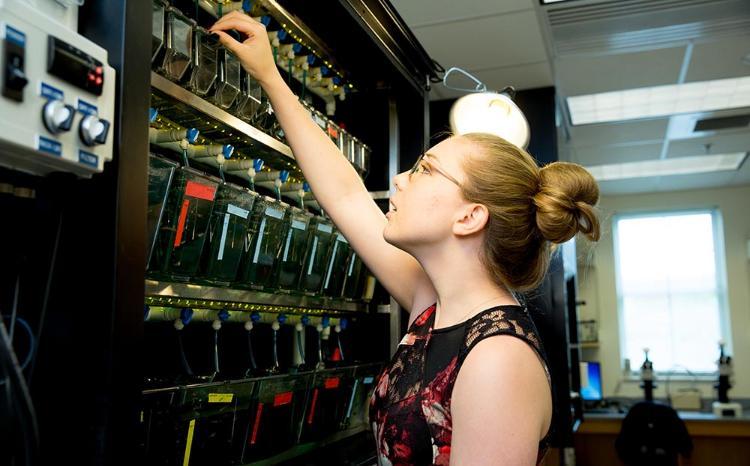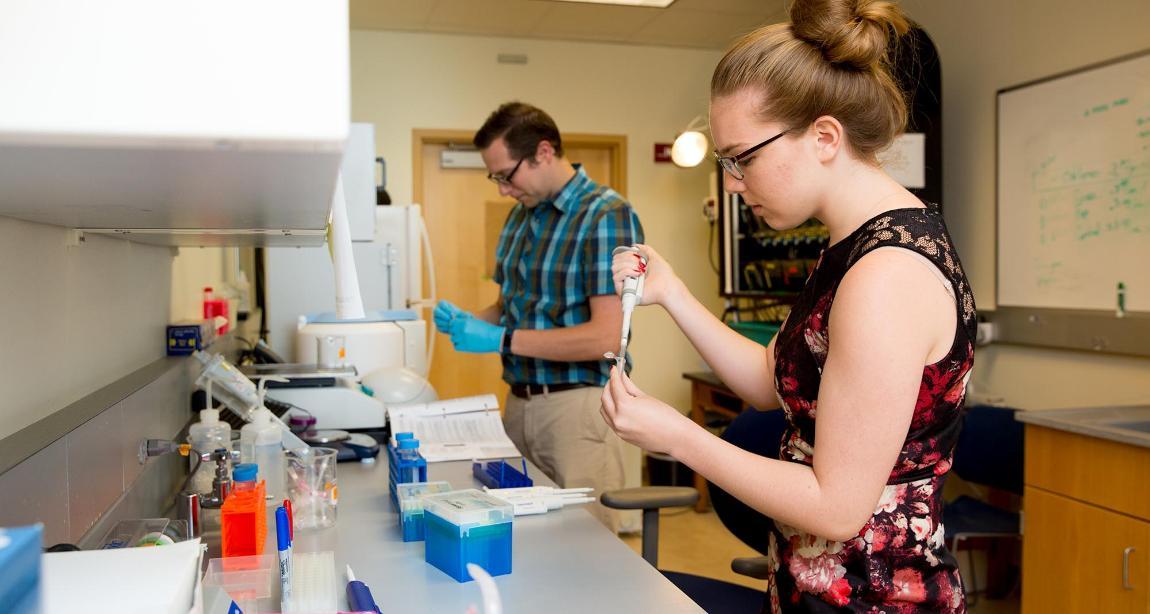Collecting samples of coliform bacteria in local waterways, spending hours every day with her eyes glued to a microscope, examining hours-old zebrafish as they develop—what’s not to like?
“I like everything about the scientific process, which also involves figuring out what worked and what didn’t,” said Carly Carter ’19, a biology major who plans to attend graduate school and pursue a career in scientific policy. The research she is conducting this summer is preparing her for both.
Her project involves studying how the genetic development of baby zebrafish—especially the development of the heart and brain—is affected by different water conditions. Specifically, she is looking at the impact of local waterways containing higher levels of coliform bacteria. Higher levels of coliform bacteria typically indicate the presence of pollutants within the water.

Much of her time in the project, part of the eight-week PRISM program, is spent examining zebrafish development under a microscope and then comparing genetic profiles of fish raised in different water sources in the developmental biology lab. These differences in gene expression levels can be quantified in zebrafish that are only three days old, which appear as black and white specks darting around in petri dishes. She collects water samples only from local streams, allowing the results of these studies to be directly benefical to the local community.
In PRISM, you can see a more complete version of the research question... You get to look at the big picture and see how it all fits together.
Carly Carter ’19, Biology Major
“I’m learning how organisms develop under different stresses,” said Carter, a member of the Cormier Honors College. “I love practicing the techniques I learned in class and learning how they can be used to ask different scientific questions.”
Carter’s project, directed by Dr. Wade Znosko, assistant professor of biology, is a continuation of a similar PRISM project he led last summer. “We’re diving a little deeper at the genetic level,” said Znokso, who—using zebrafish, a favorite organism among those who study aquatic vertebrate development—has researched this topic for about five years.
Carter did two class-based research projects this spring, one in microbial diversity and one in ecology, both of which she presented at the campuswide student research day in April
“In PRISM, you can see a more complete version of the research question than in class. You get to look at the big picture and see how it all fits together,” said Carter, who is from Herndon. “Research is fun. I feel like I’m able to make an impact in the scientific community.”



Leave a Comment